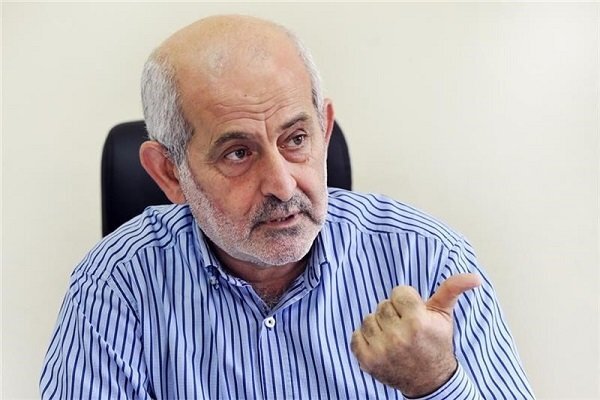Palestine has a fixed position in Shia thought: Lebanese professor

TEHRAN - Head of the Center for Political Studies at the University of Lebanon says that Palestine is alive in Shia leaders and thinkers' thoughts.
"The status of Palestine is fixed in the thought of Shia leaders who spoke about the liberation of Palestine and support for the Palestinian resistance," Dr. Talal Atrissi tells the Tehran Times.
Imam Musa al-Sadr in Lebanon and Imam Khomeini always had supportive stance when it came to Palestine cause, Atrissi notes.
"Imam Khomeini emphasized, not only on the intellectual and political level but also on the practical level, on arming Palestinian people and necessity of support to the resistance groups by all means," he points out.
Following is the text of the interview:
Q: Today, after decades of struggle, how do you evaluate the Palestinian situation?
A: After decades of struggle, the Palestine cause is still alive where the Palestinian people uphold this cause and defend their lands.
There is still a Palestinian resistance movement consisting of different factions fighting inside Palestine.
“Indeed, some Arab countries consider Hamas and Hezbollah terrorist movements, while they are just resistance movements that confront the Israeli occupation.”On the other hand, there is a view that claims negotiations can resolve the Palestinian problem. This approach still exists, but it reached a dead end after about twenty years of negotiations.
There are those who consider that peace and normalization with Israel will resolve the Palestinian problem and will end the state of hostility with Israel, and this is what some (Persian) Gulf states have done. But in sum, after all these years, Palestine raises the slogan of resistance as a humanitarian goal, and therefore there is still a feeling that the occupation of Palestine is an unnatural measure.
Q: How do you assess the role of Arab countries when they address the Palestinian-Israeli conflict?
A: Unfortunately, the Arab role is generally not positive, as some Arab countries have normalized relations with Israel, opened consulates and embassies, and received Israeli delegations as if they are not an enemy of Arabs and Muslims.
The Arab League also no longer adopts a firm stance toward Israel, and therefore the Arab situation today is catastrophic regarding the Palestinian cause. Indeed, some Arab countries consider Hamas and Hezbollah terrorist movements, while they are just resistance movements that confront the Israeli occupation.
Therefore, the Arab position today is not divided between those who normalized ties with Israel and those who conciliated with Israel, nor did anything for Palestine. They believe in negotiation and political solutions to solve this conflict.
Q: How do you assess America's role in supporting Israel over the past decades?
A: America's support for Israel is one of the American constant policies. The United States of America has always stated that its strategic interests in the Middle East (West Asia) are to protect oil and Israel's security.
Israel is an advanced military fortress for the West and to defend the West's interests in the Middle East (West Asia); and for this reason, the United States has always stood by Israel in all its wars and aggressions.
Q: What is the status of Palestine in Shia leaders and scholars’ thought?
A: The status of Palestine is fixed in the thought of Shia leaders who spoke about the liberation of Palestine and support the Palestinian resistance. Imam Musa al-Sadr in Lebanon always used to say, "I support Palestinian cause, because the resistance is right, and Israel must be wiped out. There can be no reconciliation with it, and Palestine must be liberated."
Before the victory of the Islamic Revolution in 1979, Imam Khomeini issued a fatwa that Muslims must financially back the Palestinian resistance groups.
After the victory of the Islamic Revolution, the first country to open an embassy for Palestine was the Islamic Republic.
Imam Khomeini insisted, not only on at intellectual and political level but also at practical level, on arming Palestinian people and the necessity of support to the resistance groups by all means so that the resistance movement could continue and make an attempt to end the Israeli occupation. So, there is a common goal for Shia and Sunni scholars which is the Palestine cause and the restoration of the rights of the Palestinian people.
Leave a Comment